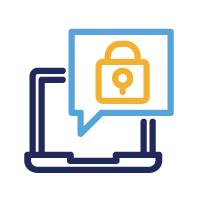Updated March 1, 2021
This section of the ACT website includes articles on agency information security, implementing secure email with TLS, and general information security articles.
New Cybersecurity Resource for Independent Agents: Agency Cyber Guide 3.0

Handling sensitive information is now one of the most critical responsibilities faced by the modern insurance agency.
Our Agency Cyber Guide 3.0 will help you understand threats and create policies and procedures to protect your agency from a cyber threat and prepare your agency for recovery should a threat occur.